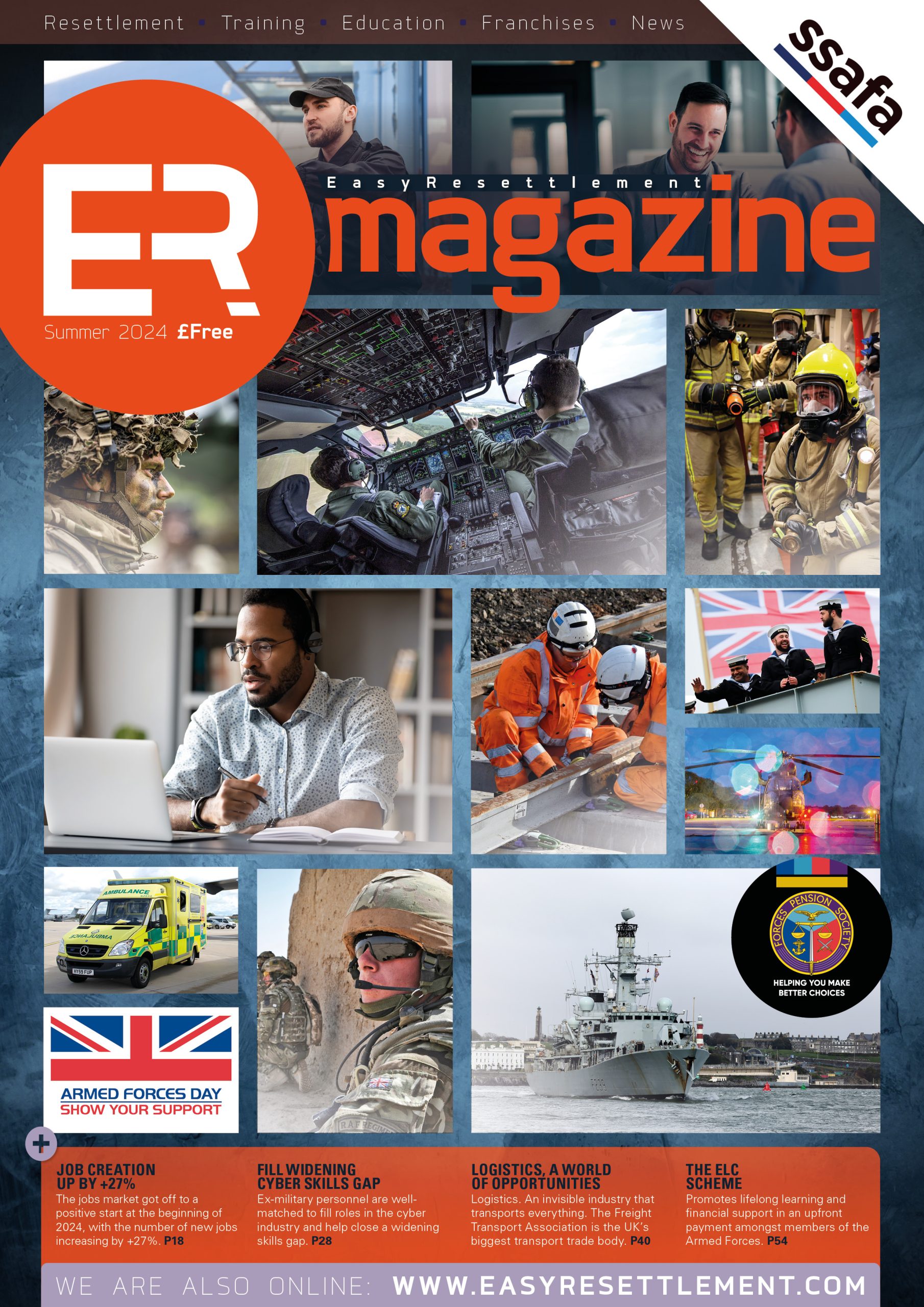SSAFA’s Mentoring service provides helping hand to service leavers
SSAFA, the Armed Forces charity’s Mentoring service provides support to members of the Armed Forces and their families when they leave the military and join civilian life.
The service has a holistic approach to transition and provides one-to-one support for service members that are about to leave the Forces, or veterans up to two years post discharge. Service leavers (mentees) will be assigned a mentor in their local area and this relationship will help to build resilience and empower the mentee to fulfil their potential outside the military.
As a result of the Covid-19 pandemic, the need to be flexible and adaptable was imperative, with SSAFA needing to adopt new methods of communication to continue their support to service leavers. Volunteer mentors began to communicate on other platforms, such as phone and video calls, email and text to continue to offer a full service to those in need. As the lockdown eased, SSAFA started to return to face-to-face meetings, initially meeting beneficiaries for a walk in the park rather than for a coffee indoors. This helped to reduce the isolation and loneliness mentees were experiencing due to the pandemic and enabled the charity to address the needs of their beneficiaries.
Jamie McGuin was supported by SSAFA’s Mentoring service in 2020. After an exciting career in the Royal Navy, which took him all over the world, a back injury stopped him in his tracks. He was left facing life with no job, no home, and a family to look after, all during the Covid-19 pandemic.
Jamie knew that he needed help; that’s when he contacted SSAFA’s Mentoring service.
“I was in the Royal Navy for 11 years. I joined in 2009 as a Warfare Specialist and I then went on to specialise in sonar. I loved the camaraderie. I had a great and busy career working on maritime security, preventing Somali pirate operations and drugs trafficking. We also helped with anti-submarine warfare.”
When Jamie was working in America alongside the US Navy, he injured himself during a gym session. The physical demands of his role in the Royal Navy meant that the injury (bulging discs in his back and a stress fracture) became worse and upon his return in the UK, he was shore-based. With his medical treatment continuing for many years, Jamie knew that returning to sea would not be possible.
Jamie said: “The Navy gave me a choice – either become permanently shore-based or leave the service. I felt like it would be really demoralising to be shore-based for the rest of my life, so I made the choice to leave.”
Jamie was medically discharged in 2020. As he began the resettlement process, he got in touch with SSAFA, uncertain about what he could do due to his ongoing health issues.
He continued: “I was constantly being told, ‘Don’t worry, it’ll be fine’, but I was getting tired of being told that. I needed something solid that I could fall back on, and I felt like SSAFA could help me reach the right point, because I was worried that life would come crashing down and I wouldn’t be able to get a job. That was my biggest concern.’
“I connected with SSAFA’s Mentoring Service Manager, Clare Bain, who put me in touch with the regional lead. And within two or three weeks I was assigned my own mentor, Barry, in October 2020. At first, we’d have regular weekly sessions, and due to the pandemic, our conversations were over the phone. Then as it became clear I was progressing well and transitioning into civilian life, we reduced the calls to once every two weeks.”
“After starting mentoring, things really picked up for me. Barry gave me advice on some strong industries in terms of job security and opportunity.
“I got a job very quickly as a telecoms engineer. It was a great career prospect, but it wasn’t a great fit for me because it was too physically demanding with my injuries. After a couple of months of real ‘back breaking’ work, I realised I needed to take care of myself and invest in my future. To stop trying to grit my teeth and get on with it.
“Barry helped me to look at things differently, and I had the confidence to sell myself in the civilian world. I now have a new full-time job, still in telecoms, but now surveying fibre optic networks. I work out in the field, but in a much less physically demanding role. There are many similarities to service life, and I am currently working with many ex-force’s personnel, that recognise the vast array of soft skills that I can bring to the table. I’ve had a gleaming start so far, with a bright future at the company.”
“Because of the job, my wife and I have just been able to make an offer on our first home, and we hope to move in very soon! Things are definitely looking up for us at the moment.”
To find out more about SSAFA’s Mentoring service, visit
www.ssafa.org.uk/mentoring or email mentoring@ssafa.org.uk

